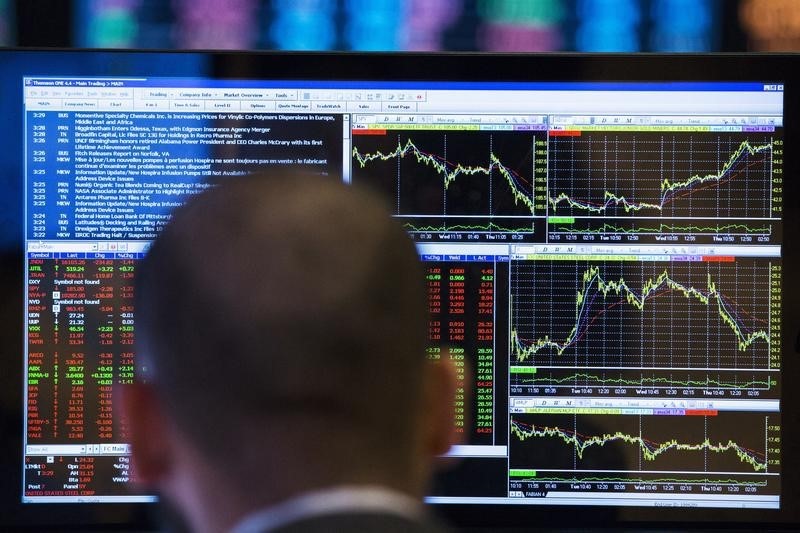Investing
Emergency Credit Suisse rescue shakes faith in Switzerland

© Reuters. FILE PHOTO: The logo of Credit Suisse is pictured on a building near the Hallenstadion where took place the Annual General Meeting, two weeks after being bought by rival UBS in a government-brokered rescue, in Zurich, Switzerland, April 4, 2023. REUTERS/P
By John Revill and Noele Illien
ZURICH/BERN (Reuters) -Switzerland’s tradition of dependable consensus politics has taken a battering after the government used an emergency law to push through a state-backed mega-merger of UBS and Credit Suisse, sidelining the country’s parliament.
Switzerland’s two parliamentary chambers voted to reject the government’s 109 billion Swiss francs ($122.82 billion) in aid for the deal between the country’s two biggest banks, delivering a slap in the face for government.
The defeat is symbolic as it cannot change the merger, but it is a blow for the government in an election year and makes it harder to build broad support among the population for the biggest corporate rescue in Swiss history.
The use of emergency laws, in which shareholders and parliamentarians have no say, will also damage the standing of Switzerland’s financial industry abroad, analysts have said, especially as it faces rising competition from other financial centres like Singapore.
The Swiss political model is under pressure at the moment, said political scientist Michael Hermann, a director of pollsters Sotomo, adding that the foreign perception of Switzerland as business friendly and as a financial safe haven could be undermined.
“Legitimacy in Swiss politics has been weakened, People who worried about an over powerful government during COVID will see their fears confirmed,” said Hermann.
“This is damaging for the trust in democracy – parliament says no, but the emergency credits still go through.”
A recent Sotomo poll showed two thirds of the population was against the UBS takeover of Credit Suisse, while a third of respondents were angry that emergency laws had been used to bypass parliament.
The affair has already boosted support for populist right wing groups like the anti-immigrant Swiss People’s Party (SVP) and the libertarian Aufrecht Schweiz movement in local elections since the takeover. Both parties are looking to make gains in national elections in October.
PARLIAMENT ‘CIRCUMVENTED’
The Credit Suisse/UBS merger marked the first time that parliament had withheld its support for emergency laws designed to deal quickly with crises.
The facility to act without parliamentary approval, introduced in 2000, was used during the COVID pandemic to enforce restrictions and again last year to provide a Swiss energy producer with a credit line.
In the lead-up to the UBS/Credit Suisse merger last month, Swiss emergency law allowed a sub-group of six members of parliament to approve a cabinet plan to give financial aid on behalf of the legislative body, angering the almost 250 lawmakers, who were left without a say.
Swiss Finance Minister Karin Keller-Sutter defended the use of the emergency powers, saying Switzerland was not an “emergency dictatorship.”
“We don’t do it for fun. We really didn’t know what else to do,” Keller-Sutter told parliament during a stormy emergency session this week. “The emergency law is based on the federal constitution and I don’t think it’s correct to say it’s illegal.”
Lawmakers were dismayed.
“It has not been a great moment for Swiss democracy. It is terrible parliament has been put in this position and basically circumvented,” said Roger Nordmann, leader of the Social Democrat group in the Swiss lower house told Reuters.
The Swiss government said it would take into account the rejection by parliament, but stressed the success of the takeover of Switzerland’s second biggest bank – intended to prevent a financial meltdown – was paramount.
Industry experts said the deal was unlikely to be changed by politicians, with UBS being given a free hand to determine how many jobs will go and what will be done with Credit Suisse’s valuable domestic retail banking business.
Swiss media has reported that the takeover could result in the combined bank cutting its Swiss workforce by up to 30%, which could cost 11,000 jobs.
“Despite the anger, most policy-makers do not want to interfere in the merger, to create and bear the risk that the merger does not succeed,” said Hans Gersbach, co-director of the KOF economic research institute at ETH Zurich.
“Politicians might have wanted to show their disapproval about what happened, but they don’t want the UBS takeover to fail.”
Ultimately, 209 billion Swiss francs are being provided as state and central bank guarantees and support in the plan drawn up by the seven-strong Swiss cabinet, which has members from four political parties.
The amount is equivalent to around a quarter of Switzerland’s entire economic output, and includes emergency liquidity injections and a state pledge to absorb up to 9 billion francs in losses incurred by UBS, based on documents outlining the deal.
Peter Kunz, an expert in economic law at the University of Bern, said the lawmakers were ultimately powerless to change it.
“In Switzerland, we often pat ourselves on the back for having the oldest democracy in the world. Yet seven people decided on 250 billion francs of support, an unimaginably huge sum of money,” he said.
“And the parliament has no say in the matter. The use of such emergency legislation, overturning antitrust rules, is a problem for Swiss democracy and rule of law. It calls Swiss democracy into question.”
($1 = 0.8875 Swiss francs)
Read the full article here

-

 Side Hustles5 days ago
Side Hustles5 days ago5 Things That Could Significantly Impact Your Company in 2025
-

 Investing5 days ago
Investing5 days agoNFI Group surge after board reshaped with new appointments, chairperson By Investing.com
-

 Side Hustles6 days ago
Side Hustles6 days agoHow Failing 22 Times Paved the Way to My Success
-

 Passive Income4 days ago
Passive Income4 days ago3 Challenges Entrepreneurs Will Face in 2025
-

 Side Hustles6 days ago
Side Hustles6 days ago3 Strategies to Make Your Next Campaign Go Viral
-

 Make Money2 days ago
Make Money2 days ago10 Critical Questions to Ask Your Financial Advisor Now
-

 Investing6 days ago
Investing6 days agoChinese hack of US telecoms compromised more firms than previously known, WSJ says By Reuters
-

 Investing6 days ago
Investing6 days agoApple Siri Settlement: Who Is Eligible for a Cash Payout


















